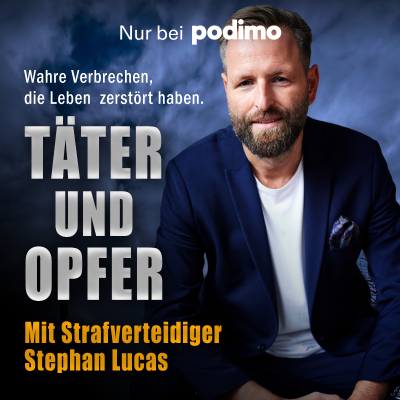
Warwick Critical Finance
Englisch
Gratis en Podimo
Kostenlos hören bei Podimo
Starte jetzt und verbinde dich mit deinen Lieblingspodcaster*innen
- Vertraut von über 1 Mio. deutschen Hörer*innen
- Über 1.000 lokale Podcasts und Shows – nur bei Podimo
- Keine Zahlung nötig
Mehr Warwick Critical Finance
The Warwick Critical Finance (WCF) Group is a study group based at the PAIS department of the University of Warwick which takes a critical approach to new and emerging trends in finance. We seek to create a sustained conversation among Warwick researchers working on different aspects of finance - from the level of global financial flows to everyday financialisation - and how finance intersects and interacts with key dimensions such as development, class, gender, race or geography. The group aims to develop a productive awareness of the numerous projects, questions, and ideas pursued in finance research at Warwick and beyond. We also offer PhD students and early career researchers working on finance the possibility to present their research in the group and receive feedback from fellow finance researchers. Throughout the year, the WCF group organizes lectures, conferences and workshops aimed at strengthening scholarly exchange and at shining a light on the multiple approaches and issues to be discovered within the critical study of finance. The WCF group works in collaboration with the International Political Economy (IPE) Cluster at PAIS. If you would like to present your own work, or if you would like to suggest further events please contact us on: wcf@warwick.ac.uk You can also follow us on Twitter and Facebook! If you would like to be added on our mailing list to receive e-mail updates on events please subscribe on our website.
Alle Folgen
22 FolgenMatthias Thiemann: 'The scientization of central banks: How economists shape macroprudential policy'
How do economists shape central bank policy? Do we need to place our focus on the legitimating discourses of economists, be they within or outside of central banks; or do we also need to understand the policy devices - ways of observing the economy, measuring developments within it and tools to act upon this information - which are developed by these economists? Which dangers are envisioned/anticipated by these measuring devices and which policy actions do they facilitate? To discuss these questions, WCF invited Matthias Thiemann, Assistant Professor for European Public Policy at Science Po, Paris. In this talk, Matthias analyses why certain ideas that gained prominence post-crisis are translated into policy tools, while others are eschewed by policy makers.
Matthias Thiemann: 'The scientization of central banks: How economists shape macroprudential policy'
How do economists shape central bank policy? Do we need to place our focus on the legitimating discourses of economists, be they within or outside of central banks; or do we also need to understand the policy devices - ways of observing the economy, measuring developments within it and tools to act upon this information - which are developed by these economists? Which dangers are envisioned/anticipated by these measuring devices and which policy actions do they facilitate? To discuss these questions, WCF invited Matthias Thiemann, Assistant Professor for European Public Policy at Science Po, Paris. In this talk, Matthias analyses why certain ideas that gained prominence post-crisis are translated into policy tools, while others are eschewed by policy makers.
Big-data credit scoring: risk management in Chinese social credit programmes
In this talk, Ruowen Xu examines the organisation process by which Big Data credit scoring models are produced, investigating the analytical work of data scientists who continuously maintain and improve their models to keep the results predictive. Big Data algorithmic technology is having a profound impact on our social, organisational, and public life and it permits large tech companies to perform analytics for consumer credit-risk assessments and to determine credit risk. Based on ethnographic fieldwork in a credit score modelling team of a large tech company, Ruowen's research studies the development of an emerging Big Data algorithmic credit-scoring technology alongside the government’s programme for building a social credit system in China. Her findings show that data scientist work is a continuous, repetitive, and a pre-prescribed process of developing and updating models that are complemented with machine learning-generated results, and that the way that data scientist work is organised has a direct impact on the produced model. This research expands the perimeter of how we look at algorithms and, broadly, other data-driven computing devices by looking at the organisational setting through which they are produced. For more information, please visit: https://warwick.ac.uk/fac/soc/pais/currentstudents/phd/resources/wcf/upcomingevents/ruowen-xu/
Big-data credit scoring: risk management in Chinese social credit programmes
In this talk, Ruowen Xu examines the organisation process by which Big Data credit scoring models are produced, investigating the analytical work of data scientists who continuously maintain and improve their models to keep the results predictive. Big Data algorithmic technology is having a profound impact on our social, organisational, and public life and it permits large tech companies to perform analytics for consumer credit-risk assessments and to determine credit risk. Based on ethnographic fieldwork in a credit score modelling team of a large tech company, Ruowen's research studies the development of an emerging Big Data algorithmic credit-scoring technology alongside the government’s programme for building a social credit system in China. Her findings show that data scientist work is a continuous, repetitive, and a pre-prescribed process of developing and updating models that are complemented with machine learning-generated results, and that the way that data scientist work is organised has a direct impact on the produced model. This research expands the perimeter of how we look at algorithms and, broadly, other data-driven computing devices by looking at the organisational setting through which they are produced. For more information, please visit: https://warwick.ac.uk/fac/soc/pais/currentstudents/phd/resources/wcf/upcomingevents/ruowen-xu/
WCF in discussion with Daniela Gabor
A decade after the 2008 financial crisis, new political economic imaginaries have emerged to make sense of our financialised world. Critical macro-finance is one of the most important of these trends. It has shed light on the infrastructure of contemporary global finance, the links between shadow banking, money markets and monetary policy, and the evolving governance architecture established in the wreckage of the crash. To discuss critical macro-finance, WCF is excited to get into conversation with Daniela Gabor, Professor of Economics and Macro-Finance at UWE Bristol. Daniela is working on the intersections of economics, finance and political economy, researching a variety of areas such as shadow banking activities, especially repo markets, and their implications for monetary theory, central banking, sovereign bond markets and regulatory activities.















































